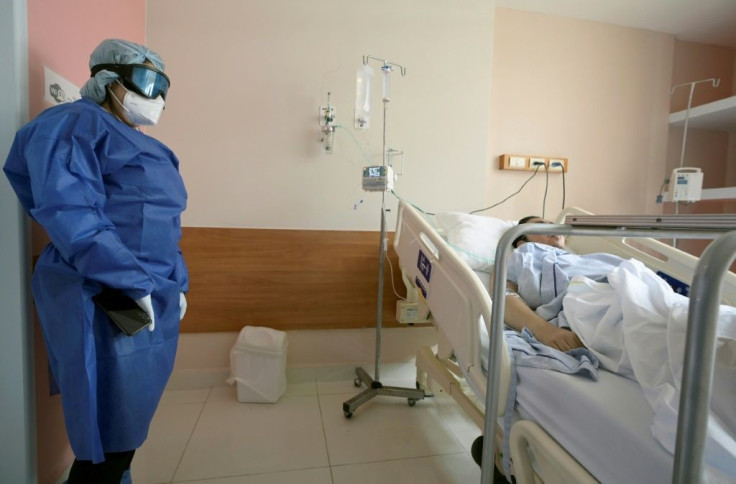COVID-19 Side-Effect Leaves Woman In Delirious State; Causes Her To Undress And Drink Soap
KEY POINTS
- She had no history of substance abuse or mental illness
- Doctors said she was confused and had hallucinations
- She showed no evidence of psychiatric symptoms after treatment
A 30-year-woman has experienced a rare side-effect after contacting COVID-19, which left her in a delirious and manic state, doctors say.
The woman, who had no history of substance abuse or medical illness, started taking off her clothes for no reason and drinking liquid soap after contracting coronavirus, said a case report by British Medical Journal.
The report said the woman, whose identity has not been revealed, took a COVID-19 test (RT-PCR) after developing a mild cough and body aches. Her results came back positive.
"She was advised to home quarantine but no specific treatment was commenced given her mild symptoms. The patient was not worried by the COVID-19 diagnosis given her mild symptoms," the report added.
However, four days later, she was brought to the emergency department of a major hospital after relatives became concerned about her behavior. They said she was very agitated, required less sleep and had been talking excessively.
"In addition, she had appeared confused, talking to people who were not there, calling family members by the wrong name, and on one occasion taking her clothes off for no reason. On the day of admission, she impulsively drank 100 mL of body wash which was the final factor leading her relative to bring her to the hospital. The patient reported a mild cough and loss of taste but no other physical symptoms. She had no vomiting, abdominal pain or related symptoms and no medical intervention was deemed necessary for the ingestion of the body wash," the report added.
Doctors who attended her found that the woman accepted she had COVID-19 but was not convinced she was psychiatrically unwell. She was later admitted to the hospital to receive treatment from the medical and psychiatric teams.
The report added that the case suggested delirious mania is "part of the range of neuropsychiatric disorders that can occur in COVID-19."
The patient has recovered after treatment, with no evidence of any psychiatric symptoms. Doctors reviewed her two weeks after the discharge and reported that she was well.
The report said COVID-19 should be considered as a potential diagnosis in patients experiencing a first episode of mania or delirium, even if physical symptoms are absent or not prominent.

© Copyright IBTimes 2024. All rights reserved.




















